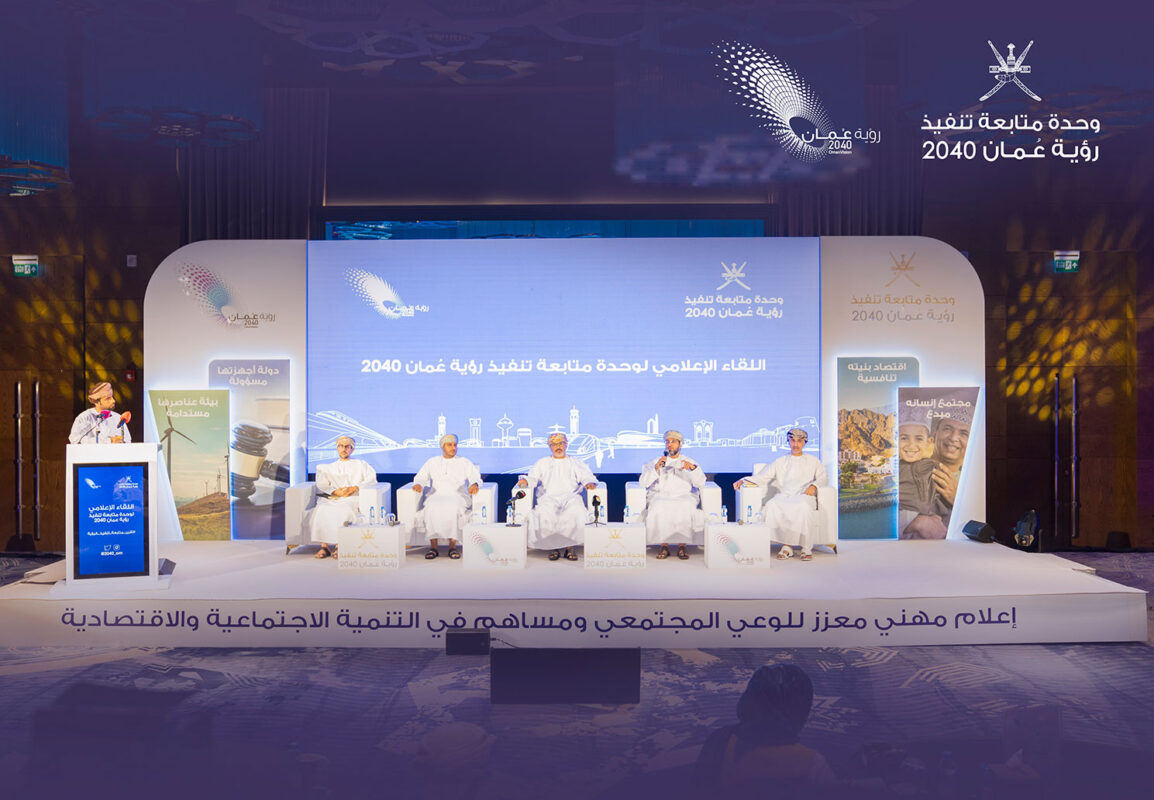Oman Vision 2040 is the country’s long-term development strategy to diversify its economy, enhance social services, and foster sustainable growth, similar to those developed by Qatar and Saudi Arabia. While the plan focuses on economic transformation and technological advancement, Kawthar al Farsi, Director of the Government Performance Measuring Department, claims this strategy is also compatible with promoting human rights.
One of the central pillars of Oman Vision 2040 is to create new job opportunities for Omanis, also named “Omanisation”. The Royal Decree No. 53/2023 on labour law, issued by Oman’s Sultan Haitham Bin Tarik, sets out that a non-Omani employee can be fired arbitrarily if there is an Omani worker to take their place. This approach weakens the rights of migrant workers as they have less job security and thus the treatment of migrant workers remains a key concern. These workers are often subjected to exploitative conditions under the kafala (sponsorship) system, which ties their legal status to their employer making them vulnerable to abuse. Although Oman Vision 2040 seeks to implement reforms, this cannot be achieved without addressing the rights of all workers, irrespective of migration status.
Oman Vision 2040 explicitly highlights the importance of gender equality in achieving sustainable development. The plan emphasizes the need to empower women and increase their participation in the workforce, which includes providing them with a 98-day maternity leave. The aim is to boost female representation in leadership roles and improve access to education and healthcare services for women.
Oman has made notable progress in advancing women’s rights in recent years, such as by allowing them to actively vote, run for public office, and occupy ministerial positions. However, without the Omani government addressing the unequal rights in marriage, divorce, inheritance, nationality, child custody, and freedom of movement, the development strategy cannot be successfully implemented.
For Oman Vision 2040 to truly achieve its goal of gender equality, continued efforts are needed to challenge discriminatory practices and promote women’s rights across all spheres of life. The government must ensure that women not only fully participate in the workforce and hold leadership positions, but they must also challenge harmful cultural norms, as this will be crucial to achieving the vision’s ambitious goals.
Oman continues to maintain strict controls on freedom of speech, the press, and assembly. The Freedom House scored Oman 1 out of 4 for the question “Are individuals free to express their personal views on political or other sensitive topics without fear of surveillance or retribution?” and overall 24 out of 100 on the freedom scale in its 2024 report. These ratings illustrate how poorly Oman is doing in promoting and protecting the freedom of its citizens. The country’s legal framework imposes restrictions on journalists, activists, and citizens who criticize the government or express dissenting opinions. The Omani 2018 penal code permits authorities to detain individuals who “establish, operate, or finance an organization aimed at challenging the political, economic, social, or security principles of the state”. Ensuring that people in Oman can operate freely is crucial for the country’s long-term development and respect for human rights.
Americans for Democracy & Human Rights in Bahrain encourages Oman to streamline human rights into its Vision 2040 plan and ensure that the human rights of everyone are being supported. Moreover, Oman must revisit its Omanisation strategy to ensure that foreign workers are not unjustly penalized. At the same time, Oman must invest in dismantling the Kafala system to ensure that migrant workers have job security and are not taken advantage of. Labour protection laws and practices must be strengthened and aligned with international human rights standards.





